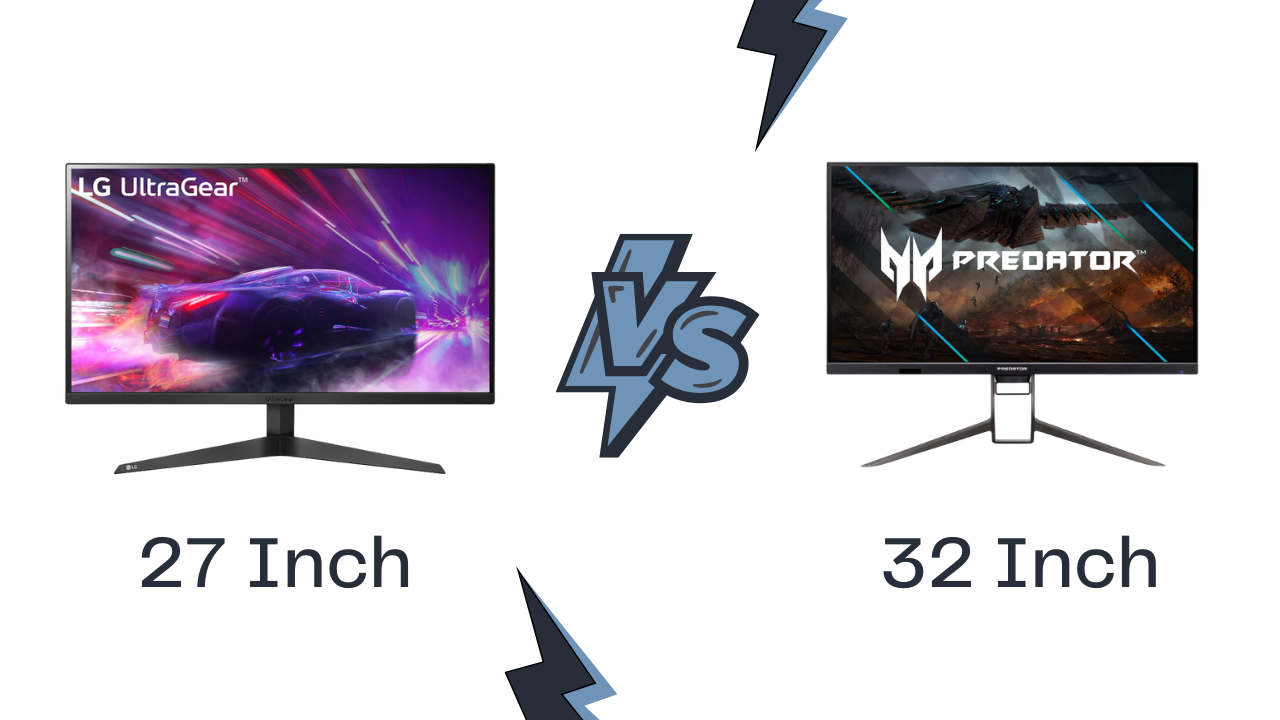
When choosing between a 27 vs 32 monitor, many factors must be considered. It can be difficult to decide which is the best option for your needs, especially since the 27 vs 32 monitor debate has been raging for quite some time now.
In this review, we’ll discuss the advantages and disadvantages of each monitor size, so you can decide which monitor is the best fit for you. A 27-inch display is considered the standard size for a computer monitor, while 32-inch monitors are larger and more suitable for larger setups. A larger 32-inch monitor gives you more screen real estate to work with, which can be beneficial when multitasking or watching movies.
However, it also takes up more physical space on your desk, which may not be ideal if you have limited desk space. Ultimately, choosing between a 27-inch and 32-inch monitor depends on your preference and budget. If you want a larger display’s added clarity and sharpness but don’t have much desk space, a 27-inch monitor may be the best choice.
On the other hand, if you have plenty of space and want to take advantage of the larger screen size, a 32-inch display might be the way to go. In either case, do your research and compare features before making your purchase.
Both sizes offer many advantages, but which one is right for you? To help you make an informed decision, let’s explore the differences between 27 vs 32 monitor.
Also Read: 24 Inch Vs 27 Inch Monitor
27 vs 32 Monitor: Key Features
| Features | 27 Inch Monitor | 32 Inch Monitor |
|---|---|---|
| Dimension | 27 in | 31.5 in / 32 in |
| Resolution | 3840 x 2160p while 2560 x 1440p is most common | 3840 x 2160 |
| Color Accuracy | ∆E < 2 | ∆E < 1 |
| Viewing Distance | 60 – 90 cm | 90 – 120 cm |
| Refresh Rate | 240 Hz | 240 Hz |
| Aspect Ratio | 16:9 | 16:9 while some offers 21:9 |
| Response Time | 1 ms | 1 ms |
| Connectivity | Relatively Same | Relatively Same |
| Gaming | Can be used | Works well |
Recommendations
27 vs 32 Monitor: 27 Inch Monitor
| Design | Model | Retailer |
|---|---|---|
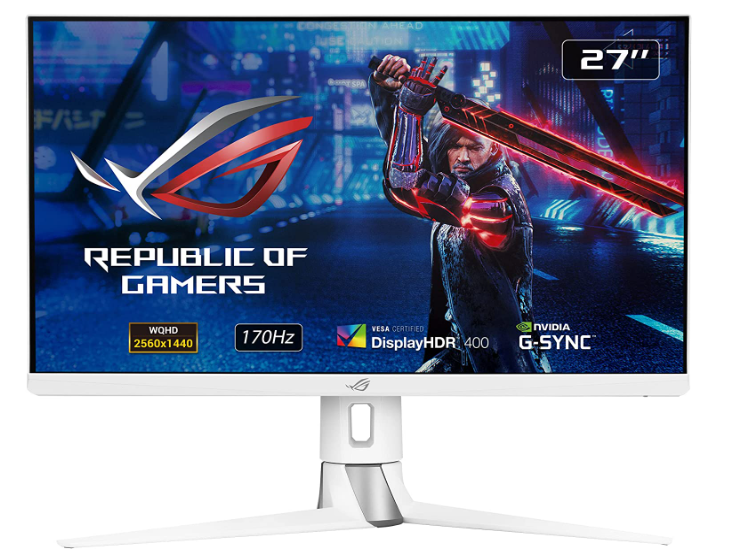 |
ASUS ROG Strix XG27AQ-W | Check Price |
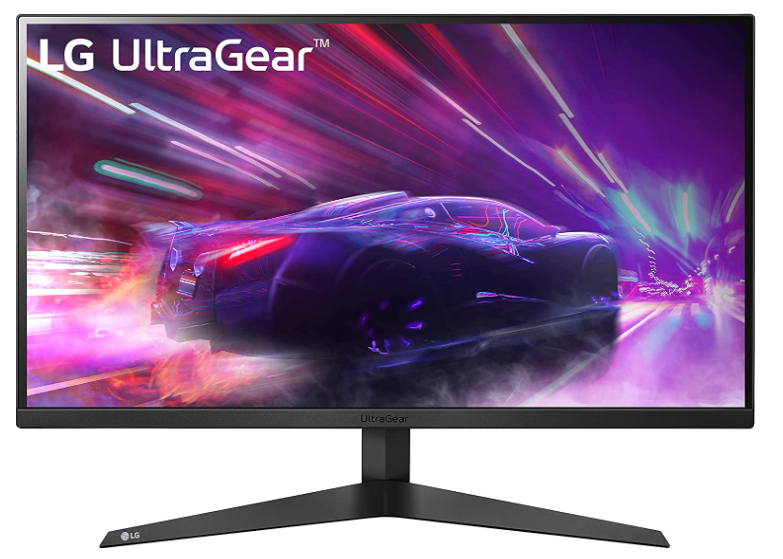 |
LG 27GQ50F-B Ultragear Gaming Monitor |
Check Price |
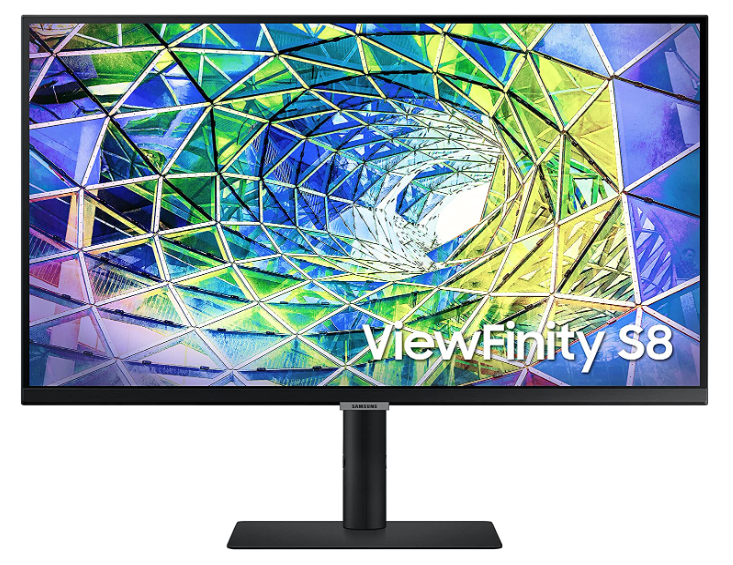 |
SAMSUNG S80A Computer Monitor | Check Price |
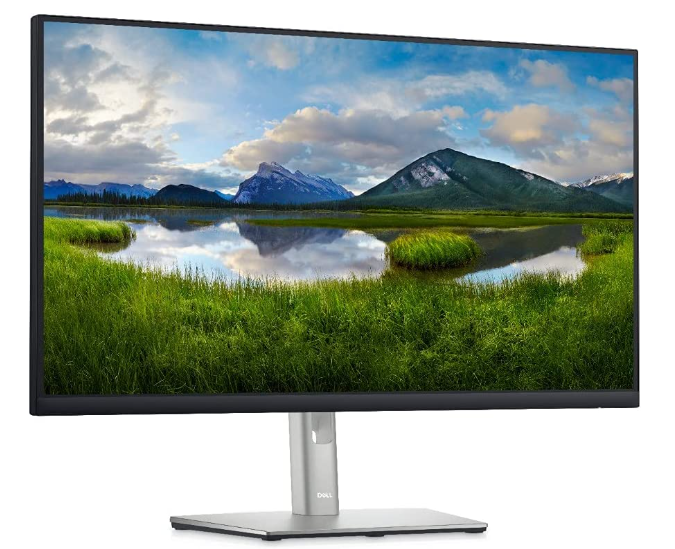 |
Dell 27 Monitor P2722H | Check Price |
27 vs 32 Monitor: 32 Inch Monitor
| Design | Model | Retailer |
|---|---|---|
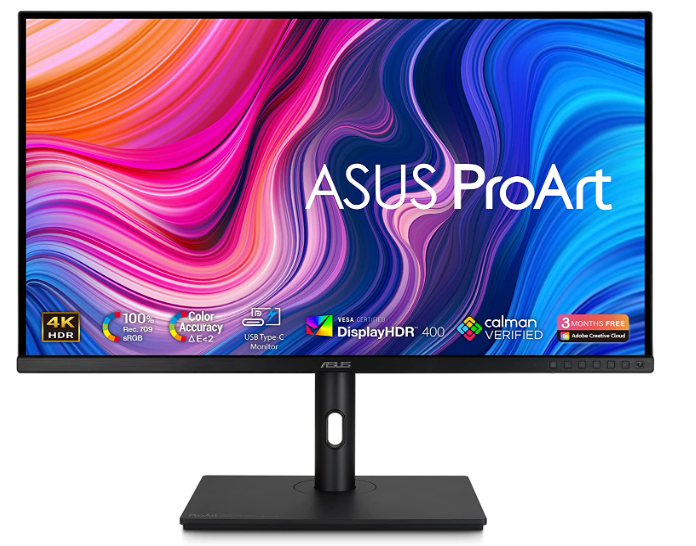 |
ASUS ProArt Display Monitor (PA329CV) | Check Price |
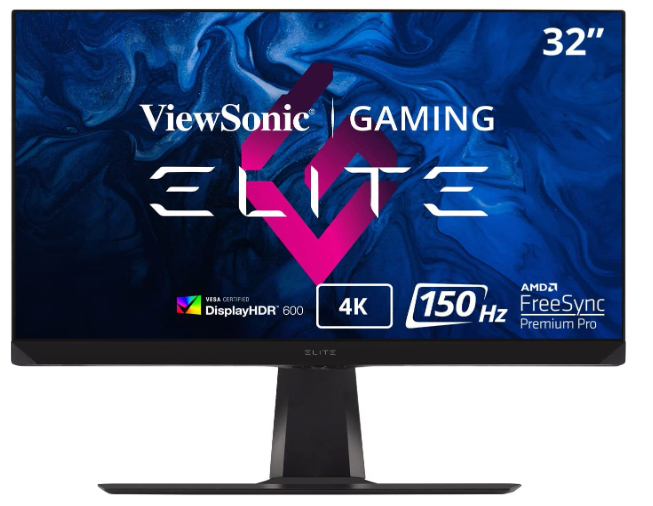 |
ViewSonic ELITE XG320U Gaming Monitor | Check Price |
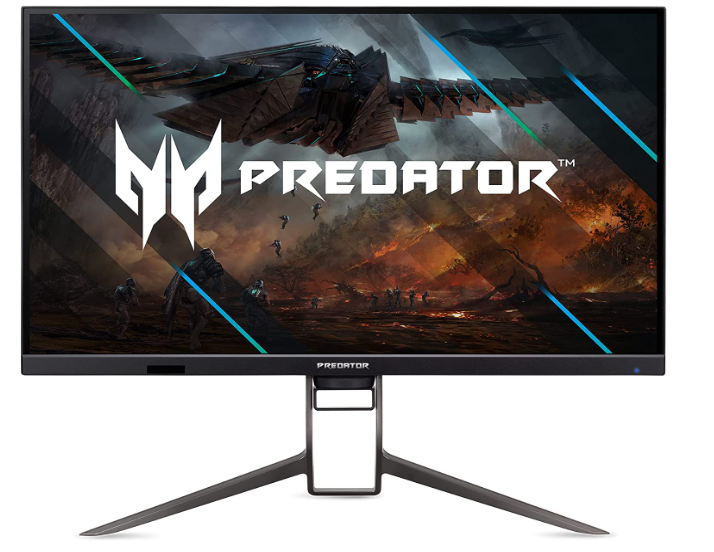 |
Acer Predator XB323QK Gaming Monitor | Check Price |
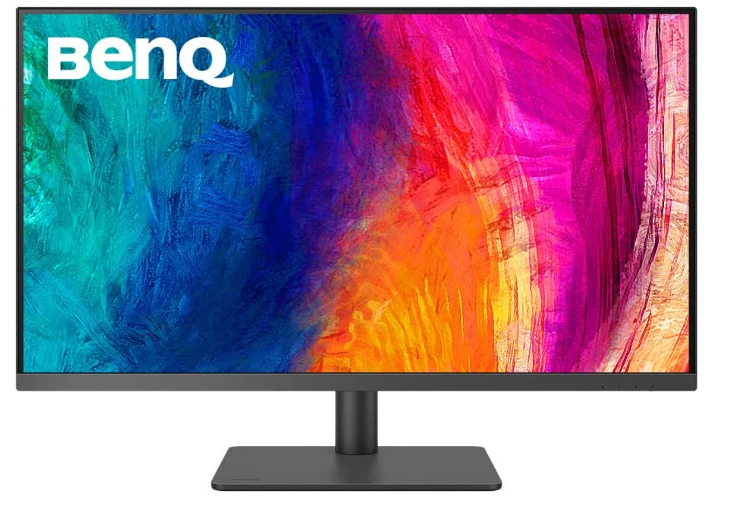 |
BenQ PD3205U Computer Monitor |
Check Price |
Detailed Comparison
Performance
Regarding performance, 27 vs 32 monitors are fairly evenly matched. Both offer the same resolution, making them good choices for gaming, streaming, and other activities requiring sharp visuals.
| The most common resolution of 27 inch monitor is 2560 x 1440p, While some manufacturers do offer 3840 x 2160p. | Typically, the resolution of 32 inch monitor is 3840 x 2160p. |
| For refresh rates, 24 inch monitors usually offer a maximum of 170Hz. However some monitors offers a refresh rate of up to 240Hz. | The 32 inch monitors offer refresh rate of 240 Hz. |
The 32 inch monitors have an edge in certain situations because they have a larger viewing area, allowing you to simultaneously fit more information onto the screen. It is something to consider if you’re looking for a monitor to work with.
Refresh Rate
Regarding the 27 vs 32 monitor, the refresh rate is a key factor. Refresh rate refers to how many times a monitor can draw new images in a second, measured in Hertz (Hz). The viewing experience is smoother the greater the refresh rate.
| A 27-inch monitor typically has a refresh rate ranging from 60 to 170 Hz. Some monitor manufacturers offer refresh rates up to 240Hz. | A 32-inch monitor typically has a refresh rate ranging from 75 to 240 Hz. |
When choosing between the two, consider the activities you plan to do on the monitor. If you’re doing activities requiring high levels of motion, such as gaming or video editing, you may opt for a 32-inch monitor with a higher refresh rate. On the other hand, if you mostly use the monitor for regular computer use, such as browsing the web or working on documents, then a 27-inch monitor with 60 Hz should suffice.
Response Time
Regarding the 27 vs 32 monitor, one of the key features to consider is response time. It is how quickly the monitor can refresh its display and present new images. The lower the response time, the better the image’s quality. Lower response times also make gaming and other activities smoother., while
| The 27 monitors typically have a response time between 2-8 milliseconds. | The 32 monitors tend to have a response time of 1-4 milliseconds. It makes them faster and more suitable for gaming and other intensive activities that require quick responses. |
Viewing Angle
The viewing angle of a 27 vs 32 monitor is one of the most important factors when deciding.
| The viewing angle of 27 monitor is 60 to 90cm. The 27 inch monitor is better suited for smaller spaces and provides less of a wide angle. | The viewing angle of a 32 monitor is 90 to 120 cm, which is much larger than that of a 27 monitor. The larger monitor will provide a much wider range of visibility, allowing you to see more of what’s happening on the screen. |
Color Accuracy
When comparing 27 vs 32 monitor displays, color accuracy is an important factor to consider.
| The display on the 27-inch monitor can be good, but it simply can’t match the level of detail and accuracy offered by the larger 32-inch monitor. | The larger 32-inch display allows for better color reproduction and viewing angles. If you are a graphic designer or another professional who works with color accuracy and vibrancy, the 32-inch display is the way to go. |
It is important to note that color accuracy will vary from manufacturer to manufacturer, so it is important to research to find out which offers the best color accuracy for your needs.
27 Vs 32 monitor: Pricing Factor
Regarding 27 vs 32 monitor, the price can be a deciding factor for some. The exact price difference will vary depending on the brand, type of display, and features you’re looking for.
| A 27-inch monitor generally costs less than a 32-inch monitor. The 27-inch monitors may range from around $200 to $800. | The 32-inch monitors can cost anywhere from $300 to over $900. |
When comparing prices, look at each monitor’s full specs to determine if it’s worth the extra money. If you want the best viewing experience and don’t mind spending a little more, then a 32-inch monitor is your best bet.
Pros and cons of 27 vs 32 monitor
27 inch Monitor
32 inch Monitor
27 vs 32 Monitor: Which One Should You Buy?
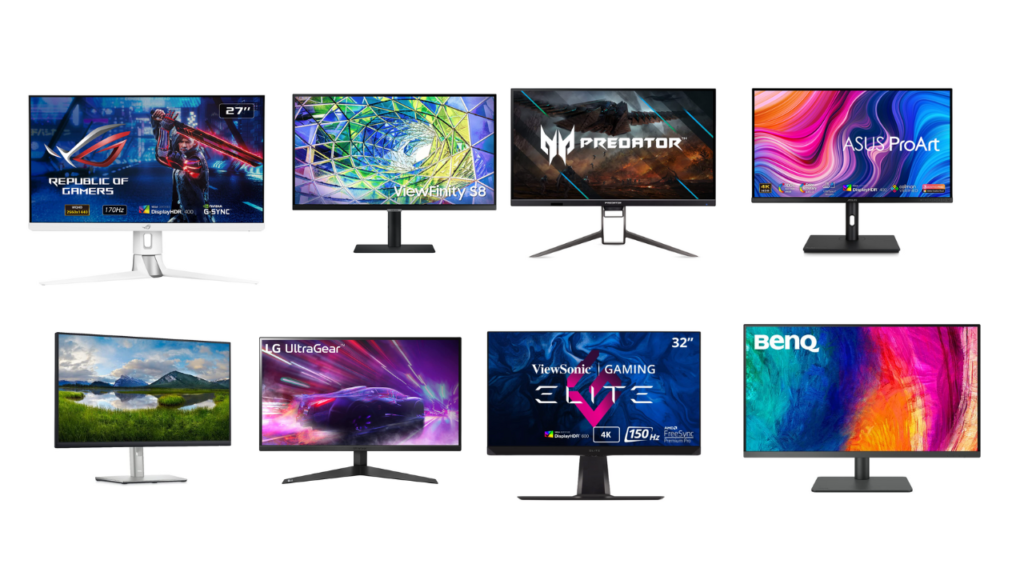
When choosing between a 27 vs 32 monitor, several factors must be considered before purchasing. The resolution, performance, viewing angle, color accuracy, refresh rate, input lag, response time, and price of each type should be considered when deciding the best one.
The resolution of a 27-inch monitor is generally higher than that of a 32-inch monitor, which means that text and images will appear sharper and clearer on the smaller monitor. For gamers and professionals who require sharp visuals, this may determine the choice between the two sizes.
The 27-inch monitor will generally perform better than the 32-inch one. It is due to the larger size of the 32-inch monitor leading to more strain on its components. Additionally, since the 27-inch monitor is smaller, it will require less power to operate than the 32-inch one.
Between 27 vs 32 monitor, the viewing angle is also important to consider when deciding between the two. A 27-inch monitor offers a wider viewing angle than the 32-inch one, which allows for more comfortable viewing angles for multiple people at once.
Color accuracy is important for professionals such as photographers and video editors who rely on accurate colors to produce their work. In this regard, the 27-inch monitor offers better color accuracy than the 32-inch one due to its smaller size and higher resolution.
Regarding refresh rate, the 27-inch monitor has a higher refresh rate than the 32-inch one, making it ideal for gamers or anyone looking for a smoother experience while using their computer. Additionally, the 27-inch monitor has lower input lag and response time than the 32-inch one.
Lastly, the 27-inch monitor is generally cheaper than the 32-inch one. While it’s true that you can find cheaper 32-inch monitors, they don’t offer the same level of performance or image quality.
Conclusion
When it comes to choosing the right monitor, size, and quality can both be important factors. After looking at the advantages and disadvantages of a 27 vs 32 monitor, it’s clear that there are pros and cons to both.
27-inch monitors are slightly more affordable, offering a wide viewing angle and accurate colors. 32-inch monitors, on the other hand, offer more screen real estate and can be better for multitasking.
Ultimately, it comes down to your needs when deciding between a 27 vs 32 monitor. If you need a larger screen with good color accuracy, the 32-inch option might be better for you. On the other hand, if you want better performance and smoother visuals, a 27-inch monitor would be your best bet.